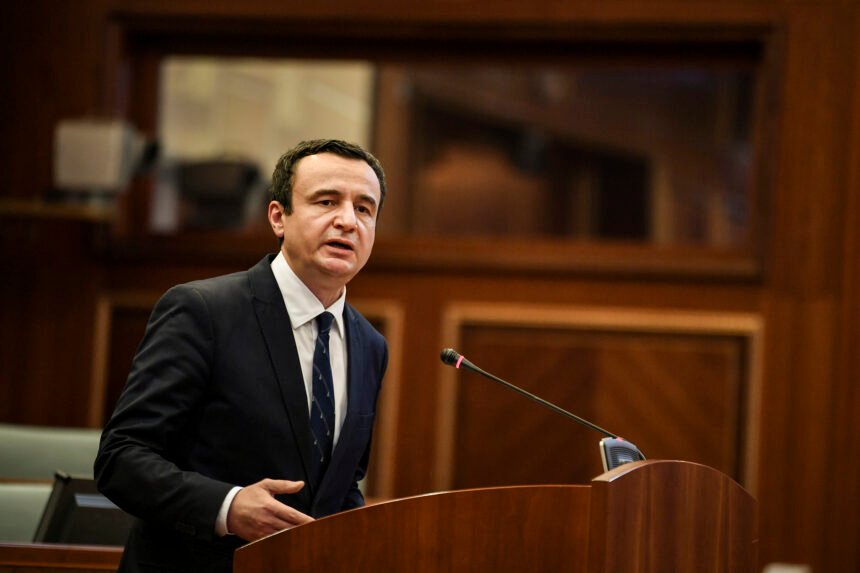Albin Kurti, leader of the Vetëvendosje Movement, failed to secure the necessary parliamentary majority to form a new government, becoming the first mandate holder in Kosovo’s history not approved by the Assembly for a proposed executive.
Nine months after the February 9 parliamentary elections, Kurti presented his proposed cabinet on Sunday. Without a coalition agreement, the vote failed to gain approval: 56 in favor, 52 against, and 4 abstentions out of 112 deputies present.
Opening the session, which started over an hour late, Kurti acknowledged the failure to form a governing majority:
“Over the past six months, efforts to form a governing majority have not yielded results, despite our repeated and state-focused attempts. None of the parliamentary parties invited agreed to join a government coalition, even though citizens’ votes indicated there should have been a governing coalition,” Kurti said.
Kurti warned of potential consequences for the state if a new government is not approved:
“Without the new government’s approval, the Republic risks heading to new elections with many institutions non-functional and without an approved budget for next year. This endangers public servants’ salaries, pensions, child benefits, social assistance, medicine supply, law enforcement, and numerous ongoing capital projects. A country without a budget cannot move forward.”
The proposed cabinet included 19 ministries, four more than the previous government, with new appointments including Dimal Basha as Infrastructure Minister, Nenad Rashiq for Communities and Return, Andi Hoti for the new Ministry of Family and Social Welfare, and actor Fatmir Spahiu as Minister of Culture and Tourism.
Opposition Accuses Kurti of Eight-Month Blockade
The session saw harsh criticism from opposition parties, accusing Kurti of blocking state functions.
Memli Krasniqi, leader of the Democratic Party of Kosovo (PDK), stated:
“Over eight months, we have been blocked by arbitrary government actions, despite the largest number of deputies supporting the ruling party. It’s time to verify the numbers, as we’ve been waiting for months.”
Lumir Abdixhiku, leader of LDK, called for a verification of parliamentary numbers instead of debates:
“LDK will not engage in debates. You claimed to have the numbers—verify them democratically. Any other outcome will inevitably lead to early elections, which now seem likely.”
Ramush Haradinaj, leader of AAK, criticized Kurti for undermining state values and warned of the consequences of ongoing political conflicts.
Kurti’s Proposed Government Agenda
Kurti emphasized that his proposed government aimed to serve the state, listing five key measures that would have been implemented:
- Approval of the 2026 budget law
- Setting the minimum pension at €150, affecting around 200,000 pensioners
- Increasing child benefits by 50%, benefiting around 400,000 children
- Raising the minimum wage to €500
- Supporting maternity benefits for new mothers
Additionally, Kurti pledged €1 billion in defense investments and plans to develop the local defense industry, including “Made in Kosova” drones.
Next Steps – President Osmani in Focus
Following the failed vote, Assembly Speaker Dimal Basha closed the session, stating that the responsibility now rests with President Vjosa Osmani, who has 10 days to consult parties to determine if a new majority exists.
If a second mandate also fails, Kosovo’s Constitution mandates new elections within 40 days from the announcement.







